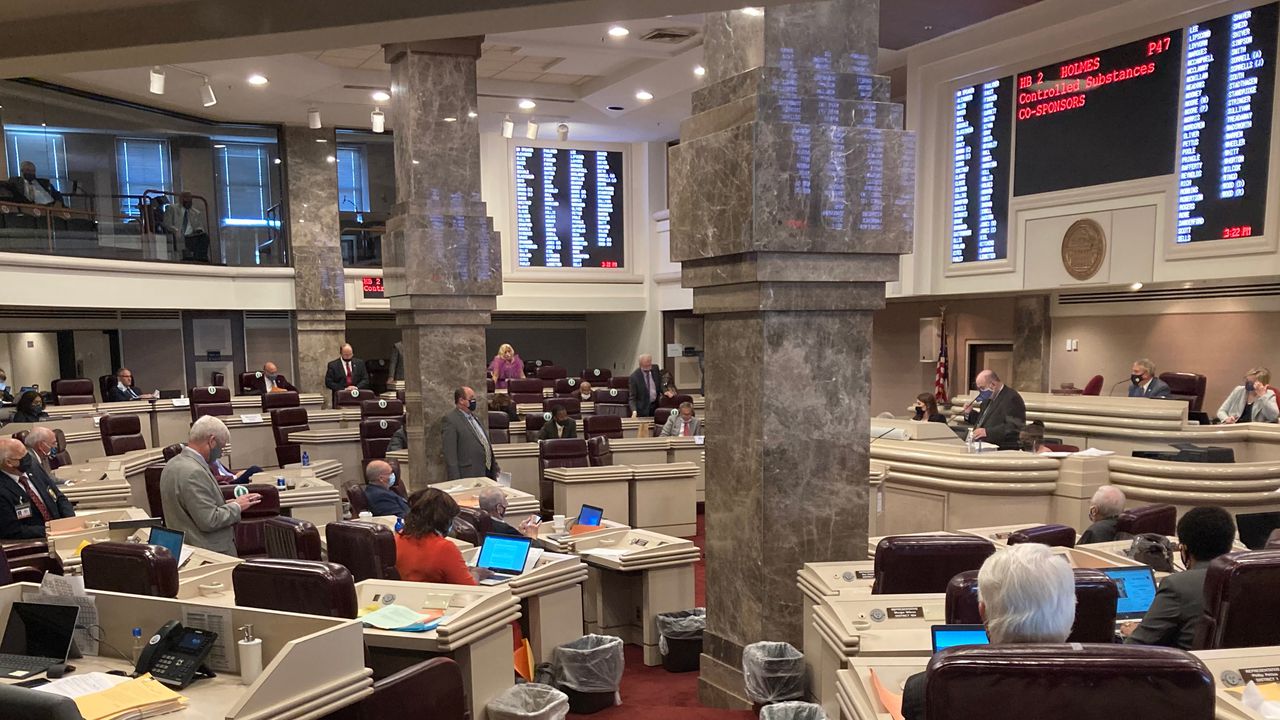Alabama bill would extend statute of limitations for child sex abuse cases to 36 years
An Alabama lawmaker has filled a bill that would extend the time that victims of child sex abuse can bring civil suits.
The bill, SB 127, sponsored by Sen. Merika Coleman, D-Pleasant Grove, would extend the statute of limitations from six years to 36 years after the victim has turned 19. The bill would make that retroactive.
Under the legislation, sexual abuse victims would be able to file lawsuits up until the age of 55. Under current law, civil actions must be filed before a victim turns 25.
Coleman was not available for comment. The bill has the support of abuse survivors, including Stuart Vance, one of three men who accused a former Randolph School teacher of abusing them in the 1970s and 80s. The teacher, Delbert Bailey, denied the accusations in an interview with al.com in 2019.
Vance said in a recent interview that he could not have come forward when he was in his 20s.
“By your 50s, you’ve had time to reflect and in my case, start wondering, gosh, if I’d come forward sooner, would I have actually been able to stop or prevent any other boys from being abused,” he said. “And that bothered me for several years until I finally realized that if I was going to put that on myself, then I would have to put that on any rape victim who just couldn’t confront their attacker, their rapist for not coming forward. And if I’m not going to put that on them, then I couldn’t put it on myself.”
Vance said that Kathryn Robb, the executive director of Child USA, a child advocacy think tank, did most of the work on the bill. Robb did not immediately return a request for comment.
Child USA reported in 2020 that the average age when victims of child sex abuse come forward is 52.
Coleman introduced a similar bill as a member of the House of Representatives last year. It did not come out of committee.
Rep. Matt Simpson, R-Daphne, a former child victims prosecutor in Baldwin County and member of the House Judiciary Committee, said Wednesdsay that he that he supports the bill.
“I’ve seen the worst of the worst,” he said in a phone interview. “And this opportunity to allow kids, allow victims the opportunity to pursue, you know, avenues of whatever they can recover from these people.”
Criminal convictions have a high burden of proof, Vance said. A 2019 study funded by the U.S. Department of Justice said that medical evidence is only available in less than 5% of cases.
Lanier Isom, a journalist and author who was a victim of sexual abuse by her high school track coach at the Altamont School in Birmingham, said the abuse cast a pall on her achievements as a high school athlete, including eight state track championships.
“Those accomplishments, which I still take great pride in today, are saturated with the shame and the trauma in frustration, abuse, boundary violations, betrayal, by not only the coach who was more interested in sleeping with his runners and the students at the school, than, you know, taking care of his team properly, as an adult,” she said.
She graduated high school in 1983.
The coach left the school in the 1980s, but a teacher who had protected him remained. An investigation was launched in 2017, but it was not done with the police. Isom sharply criticized that approach.
“When these institutions hire these investigative firms, it’s like having the judge and jury in an incest trial be your family,” she said.
The investigation found at least 10 students had suffered sexual abuse at the school from the 1970s to the 1990s.
Isom said that “the criminal justice system is not sufficient.”
“Because there’s so much shame and who’s going to believe you and even when you do speak up, because there were people that spoke up at the time of the abuse at Altamont– we’re talking adults and students,” she said. “They were dismissed because of the culture that flourished there.”
Isom said it’s important that the bill passes this year because it will give people the opportunity to address the past with “justice, accountability, truth and transparency.” She thinks that child sex abuse has not been properly addressed under the law because it’s uncomfortable and complicated.
“My experience as a student at Altamont was an It was family, it was home, it was my world and running was my life,” she said. “And it’s hard to reconcile that the place that you loved most was also where you were hurt the most.”
